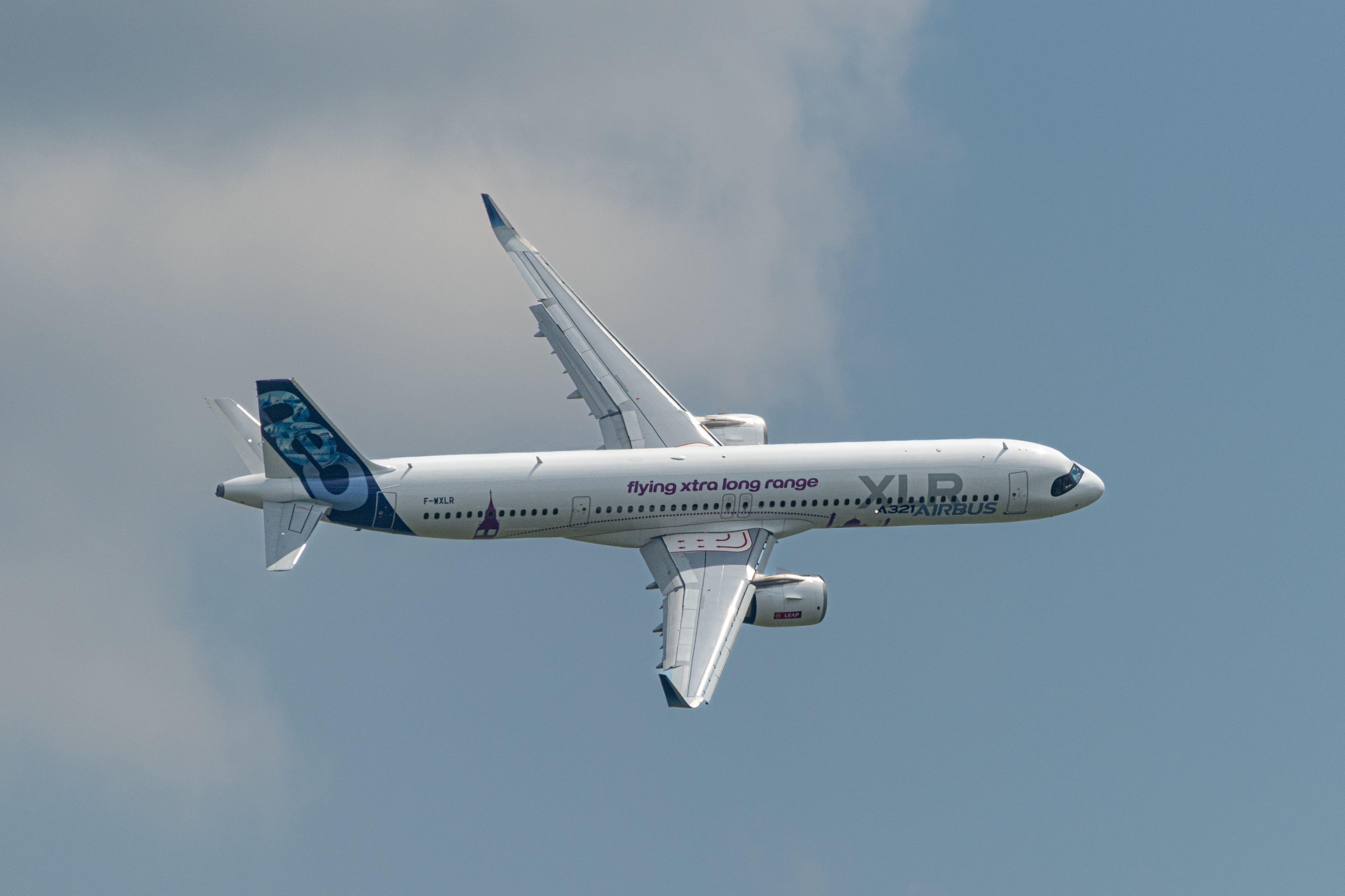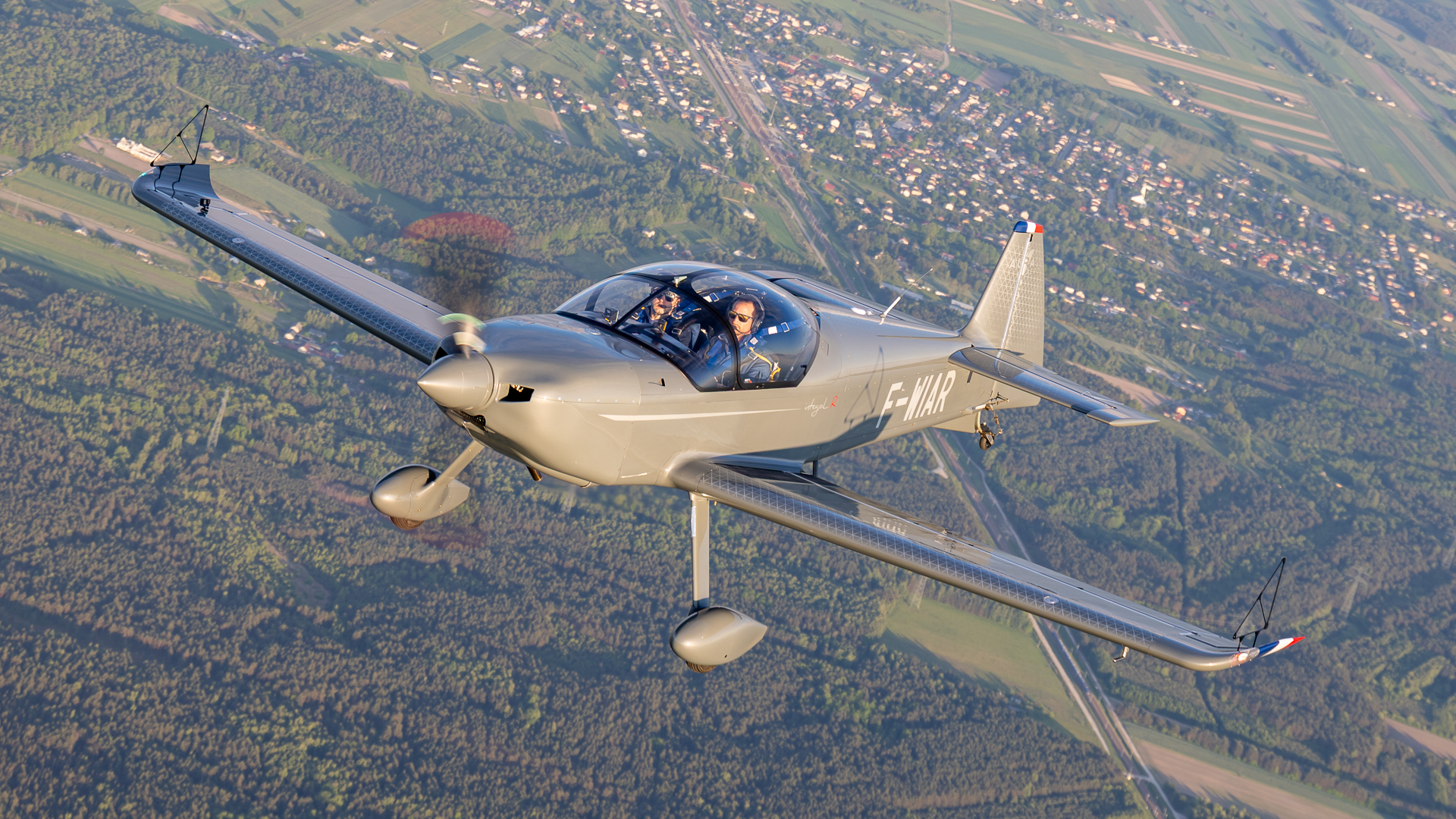THE ACHIEVEMENTS
The activity of the Aerospace Valley Aerospace Strategic Sector focuses on four key challenges defined in its roadmap.
A key area is the development of low carbon aircraft, driven by technological innovation. Aerospace Valley supports the major commercial aviation players while supporting future light aviation leaders.
For the latter, 2024 was marked by several notable advances:
- Aura Aero obtained certification of its Integral R, with a first delivery planned for 2025.
- Ascendance began assembly of its first Area prototype in Muret.
- Voltaero inaugurated its new factory in Rochefort.
- Elixir Aircraft pursued its industrial development.
- Beyond Aero revealed the new design of its hydrogen powered business jet.
- Blue Spirit Aero presented the life-sized model of the DragonFly.
Reinforcing the supply chain and innovation
To meet current and future challenges, Aerospace Valley is committed to strengthening the supply chain. The goal is to create synergies between member leading groups and SMEs, fostering better understanding of the challenges and optimal preparedness.
At the same time, the Cluster is actively preparing the ecosystem for emerging transformations notably AI deployment. To this end, a collective dedicated to AI for aerospace has been launched. It includes major groups and specialists in the field, fostering sharing of knowledge and efforts to efficiently integrate this critical technology.
Decarbonizing aviation: a global, organized approach
Decarbonizing the aviation sector requires a holistic approach, covering the entire aeronautics value chain. This includes distribution of new energies and transformation of airport infrastructures.
To succeed, Aerospace Valley has developed a specific methodology designed to transform existing infrastructures into genuine energy hubs connected to cities. This approach enables to centralize critical information to establish a clear roadmap. In 2024, a development workshop in Cahors brought together some forty specialists and decision makers. They tested and validated the maturity of this methodology, demonstrating its efficiency.
The year was also marked by the launch of Techno Campus. This excellence center will be dedicated to test facilities and integration of hydrogen related components, thereby strengthening innovation in the value chain.
At the same time, several initiatives have been launched in Occitanie and Nouvelle-Aquitaine to meet the growing need for Sustainable Aviation Fuel (SAF). Aerospace Valley plays an active role in this field, supporting the SAF Working Group at the national level. This group brings together all the key players: energy companies, operators, infrastructure managers, and manufacturers.
Aerospace Valley actively works to make the aerospace industry more attractive to the general public and young people. To this end, the cluster takes part in the educational committees of different engineering schools in both regions and involves their junior companies in technical events, fostering exchanges with industrial actors.
Aerospace Valley helped prepare the GIFAS travelling exhibition, “Design a plane” to widely promote the industry’s messages about its challenges and transformation levers. This educational, accessible exhibition presents the industry’s commitments, challenges, and solutions with regards to the fourth revolution in aerospace and decarbonization. The first phase of the exhibition at the Toulouse-Blagnac airport showcased the vitality of the sector’s main actors.
SELECTED WEBINARS AND EVENTS
Like every year, the event, Green Aero Days, in the continuity of MAELE, was a huge success with over 250 visitors and 550 B2B meetings. In collaboration with the Aeroscopia museum, a panel of aircraft was presented in this unique environment: Ecopulse from Daher, Elixir, Bleriot from Beyond, and Integral from AURA Aero.
The Future Intelligence event for Aeronautics bringing together over 300 people was marked by strong interest in AI.
Aerospace Valley partnered with the Aerospace Test & Development Show, the second edition of which attracted 25% more people than the year before. ATDS has become a leading event for aerospace test and developments solutions.
Pharos, in partnership with the Alpha-RLH cluster, brought together the main aerospace maintenance actors. The event was held at the Evering Institute in Mérignac.
EUROPE FOCUS
The Motivate XR European project, funded by the Horizon Europe program, started in June 2024 and will end in May, 2027. It aims to create an innovative, interoperable software package based on XR technologies (extended reality) and AI functions for industrial operations training and assistance in the following five sectors: aerospace, household appliances, aluminium, energy and robotics. Coordinated by the Italian company, MAGGIOLI, the project has 17 European partners including four French partners: Aerospace Valley, which is overseeing the aeronautics pilot project which will involve Sopra Steria, CS Groupe and Aerocampus.
“In December 2024, I had the honour of participating in Green Aero Days organized by Aerospace Valley. I presented an economic and regulatory review of European general aviation. I presented GAMA (General Aviation Manufacturers Association) key figures on general aviation for 2024 as well as the main current issues facing the sector today in Europe. This event enabled me to reconnect with familiar faces in our industry, and make new interesting contacts. It was an enriching opportunity to share ideas with actors in the field. I felt a genuine collaborative dynamic and a shared commitment to joining forces to achieve common goals. These occasions strengthened my sense of belonging to an engaged community, focused on innovation and the future. I am delighted to continue this fruitful cooperation for the benefit of aerospace development.”
Cate Brancart, GAMA Director Europe, Security Sustainability Development
PROJECTS AND ACTIONS UNDERWAY SINCE MARCH 2024 AND TO COME:
Aerospace Valley, as a unifying force and leader in the aerospace sector, continues to support new light aviation aircraft manufacturers. Within the CORAC CS23 roadmap, opportunities for collaborative consortiums are available to actors to meet the technological challenges on the path to certification. After having successfully launched collaborative, structural projects focused on flutter (aeroelastic fleet) and navigability in the event of emergency landings, the CS23 CORAC working group has consolidated needs in terms of battery and common modular avionics.
In November 2025, General Aviation Days (GAD) in Pau will bring together members of the decarbonized light aviation ecosystem to address energy challenges. National and international experts will analyse the main new energy challenges and how their complementary nature will transform the aerospace landscape.
In July 2025, the white paper, “AI’s contribution to sustainable aerospace” was presented by the AI for aerospace collective, led by Aerospace Valley and over twenty companies including Airbus, Dassault, Safran, Thalès, Sopra Steria, and Capgemini. This paper also presents the convictions of a collective of experts in favour of frugal, reliable, and embedded artificial intelligence, tailored to the specific needs of the aerospace sector, and integrated into processes, products and services delivered.
Aerospace Valley will soon launch an SME awareness campaign about CORAC support for their research projects. This strategic initiative will enable member companies to strengthen their visibility with the major civil aviation research body.


